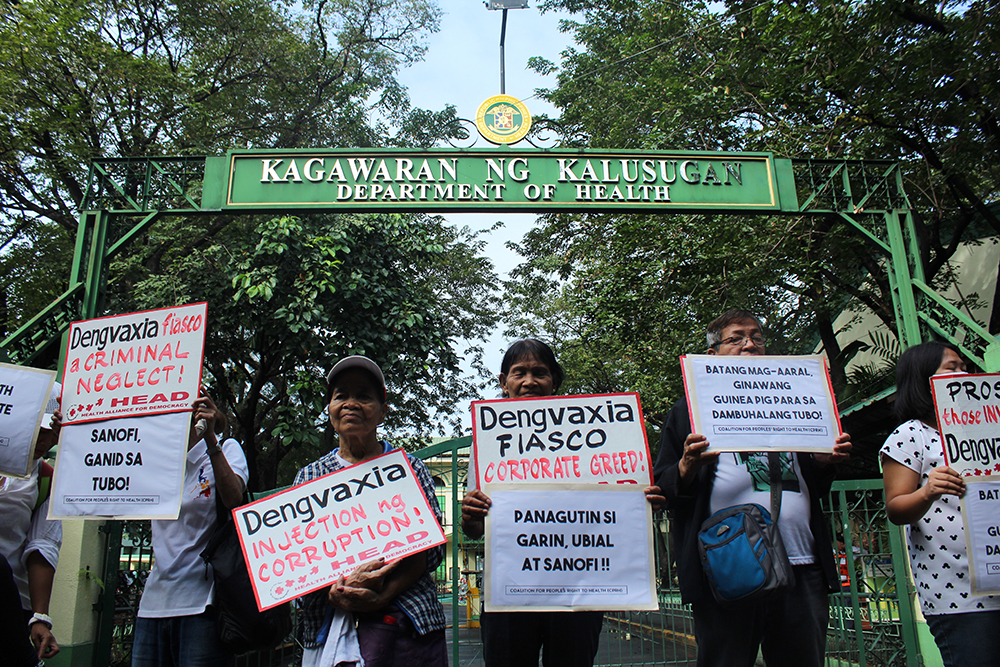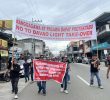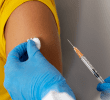
Photo courtesy of Coalition for People’s Right to Health (CPRH)
DAVAO CITY, Philippines – The Department of Health (DOH) region 11 is yet to confirm from the private health sector if the controversial dengue vaccine called Dengvaxia was given to children here in Davao region.
“We still don’t know if the private sectors, the private physicians have also vaccinated (children) because they have not yet reported as to their clients vaccinated with Dengvaxia,” Dr. Annabelle Yumang, assistant regional director of DOH 11said in a press forum here Friday, December 8.
Yumang said the office is currently requesting private doctors and medical societies such as the Davao Medical Society and Philippine Pediatric Society Davao chapter to submit a list of children they have vaccinated with Dengvaxia.
“We still don’t know that’s why we are writing to the private sector if they really gave this vaccine and we will also be asking their cooperation for this,” she added.
If the official list from the private sector comes out, Yumang assured that these children will be closely monitored by DOH 11.
Yumang said that in the region’s government’s side, no Dengvaxia vaccine was given to the public. She noted that region 11 is not included as the pilot areas of the country’s first public dengue immunization program.
The use of Dengvaxia, a vaccine developed by a multinational pharmaceutical company SanofiPasteur, forms part of the massive anti-dengue program of former President Benigno Aquino III which started in April 2016. The Philippines was known to be the first nation to use the said vaccine for the public.
The health program was launched in Regions 3 (Central Luzon), 4-A (CALABARZON) and National Capital Region (NCR) while Region 7 (Central Visayas) was added just this year. Yumang explained that these were the regions with the highest dengue cases.
“Those who have been vaccinated in the said regions are now being monitored and under surveillance. We advise parents that in case these children vaccinated with Dengvaxia have dengue-like symptoms, fever, rashes, body pains, they have to consult DOH,” Yumang said.
Over 700,000 children at risk
Previous reports quoted Sanofi as claiming that the Dengvaxia will give protection or those who will receive immunization will have dengue protection within 30 months.
This was supported by a report recently released by Saofi Pasteur on November 29 saying clinical data analysis confirmed that “Dengvaxia provides persistent protective benefit against dengue fever in those who had prior infection.”
However, the analysis also revealed that “for those not previously infected by dengue virus, in the longer term, more cases of severe disease could occur following vaccination upon a subsequent dengue infection.”
While the vaccine is currently put on hold, various groups urge the government to sue the foreign manufacturer and national officials accountable for the failed program.
In a statement, the Coalition for People’s Right to Health (CPRH) blamed government officials of the previous administration on the purchase of Dengvaxia which amounted to P3.5 billion ($69.54 million) and for putting over 730,000 school children at grater health risk due to the conduct of mass vaccination.
“We are appalled at how the Philippine Department of Health (DOH) under the term of Mr. Benigno “Noy Noy” Aquino III and continued under Pres. Rodrigo Duterte could risk the lives of children over a vaccine despite a report issued by the World Health Organization (WHO) in July 2016 that said such vaccine may be ineffective or theoretically increase the risk for severe dengue illness among those who are seronegative at the first time of vaccination regardless of age,” Dr. Eleanor A. Jara, co-convenor of CPRH said.
The Health Alliance for Democracy (HEAD) also called on DOH to immediately act on the issue.
“The Aquino administration, former Health Secretary Janette Garin, DOH, and Sanofi must be held accountable for this deception. DOH must also address the fears that this blunder have unleashed. How should the vaccinated children be protected from now on? What measures will be done to monitor those at risk and provide them with the means of proper healthcare to mitigate the risks?” the HEAD said in a statement.
Health secretary Francisco Duque III said he “might ask Sanofi to refund the P1.4 billion unused Dengvaxia supplies and demand for indemnity fund to cover the cost of hospitalization of children affected by the dengue vaccine program.








